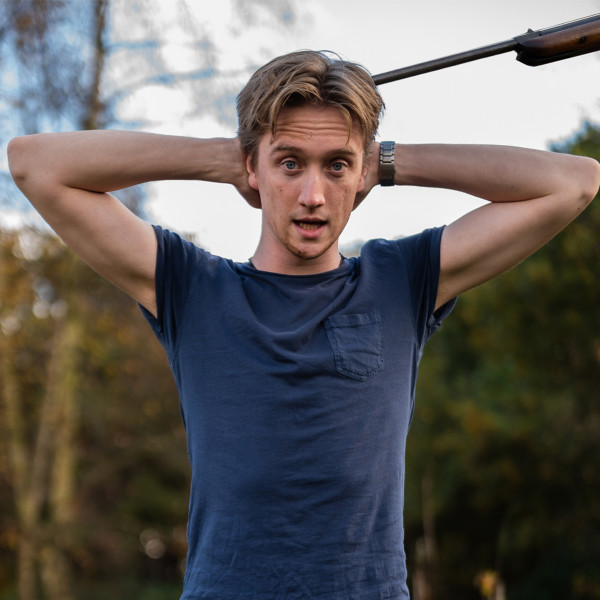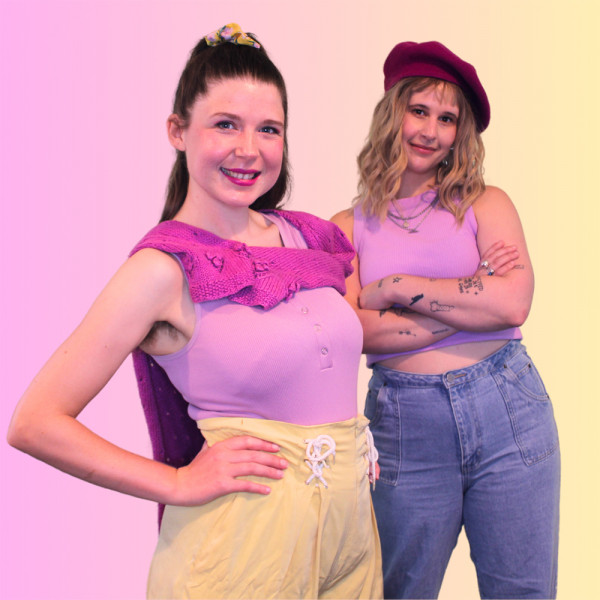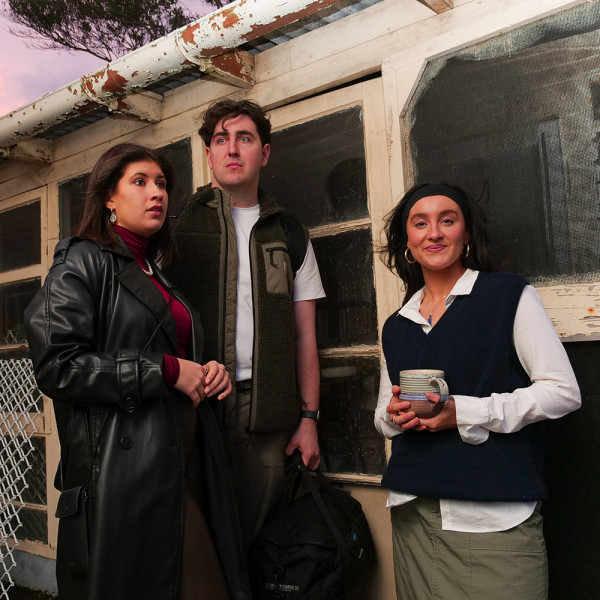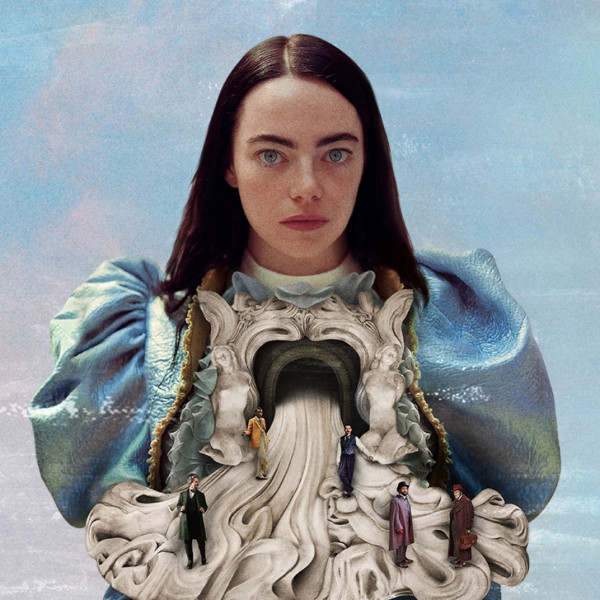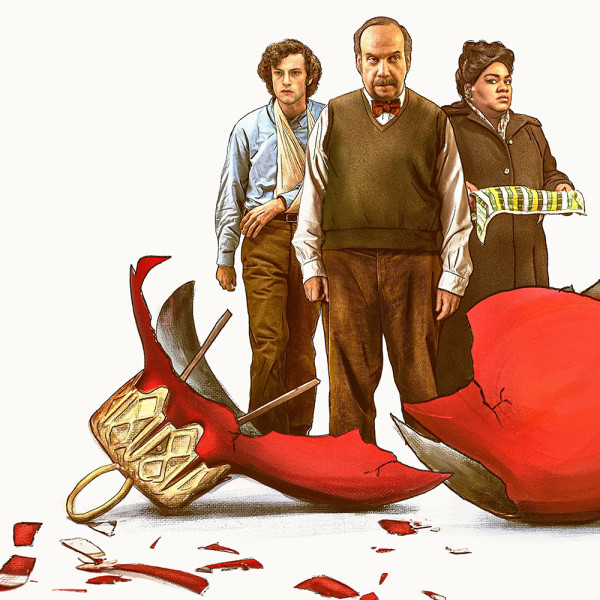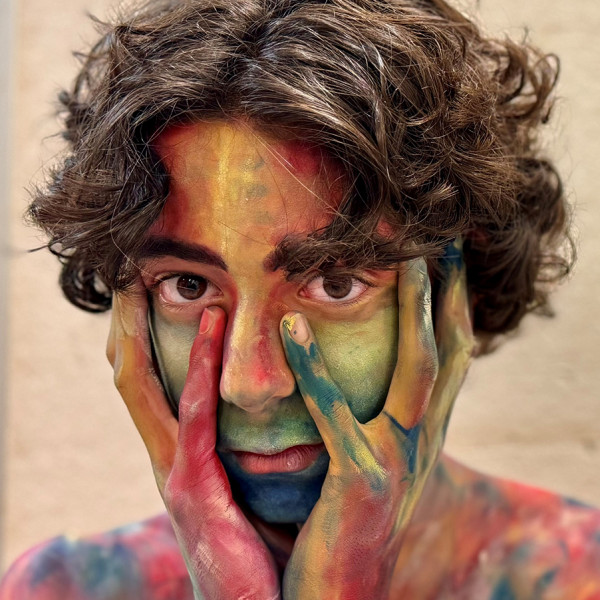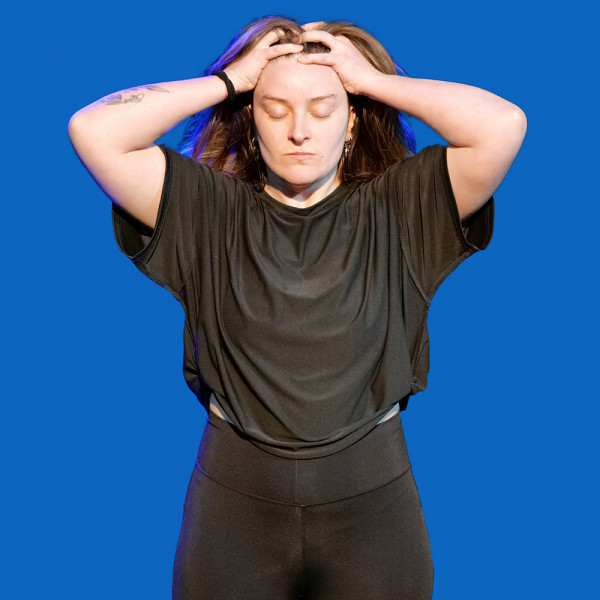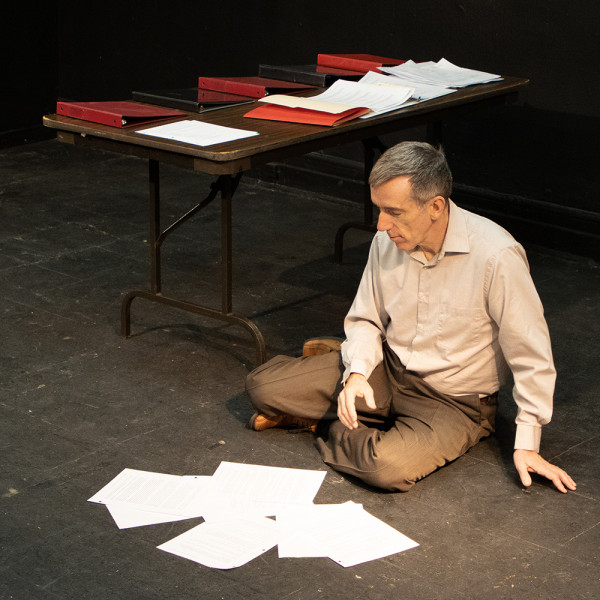
Making It Up (One Playwright to Another)
Written by: Norm Reynolds
Directed by: Lesley Ballantyne
Running online until 10th Mar 2024
Reviewed by: Zac Fitzgibbon
Making It Up (One Playwright to Another) is an award-winning dramatisation of playwright and actor Norm Reynolds’ life as he makes his way through appointments with destiny in the realms of academia, finance, and theatre.
The work is shot entirely at the Red Sandcastle Theatre in Toronto, yet it is a piece of digital theatre. Filming onstage establishes Making It Up (One Playwright to Another) as a play, even bearing in mind its online format. I respect and appreciate the foreword at the start of the piece recognising the Indigenous people’s land on which the play was filmed. I feel more art should do this.
Making It Up (One Playwright to Another) features conversations between Reynolds and renowned American playwright Edward Albee, with Reynolds playing both himself and Albee. This is a neat concept, but at times I struggle to differentiate between the characters presented. This could be remedied through more distinct characterisation. However, through these conversations, the work opens up a dialogue about the inner workings of script creation, exploring an element of theatre often left unseen. A highlight for me is the monologue towards the end, written and presented by Reynolds as Albee, about grading papers. A mundane task, sure – but Reynolds performs it so well that it becomes one of the most interesting and memorable monologues of the show.
The piece makes good use of its digital format, incorporating aspects of sound and cinematography (John Bertram) to enhance the performance in a way that would’ve been less effective in a live theatre setting. I find some of the cinematic transitions between scenes to be distracting at times, although I am not sure whether this effect is intentional.
I never expected to watch theatre intended for a digital audience, but after this experience, I realise there should be more art available in this medium. From one reviewer to another viewer, I would recommend giving Making It Up (One Playwright to Another) a go.




